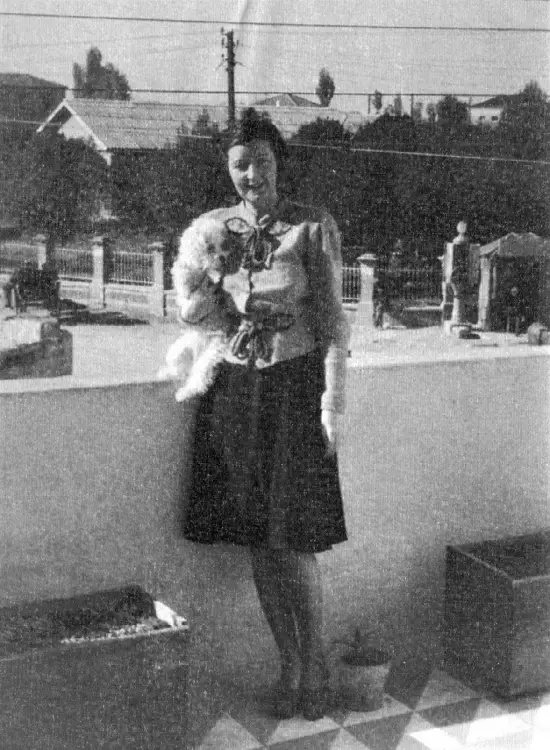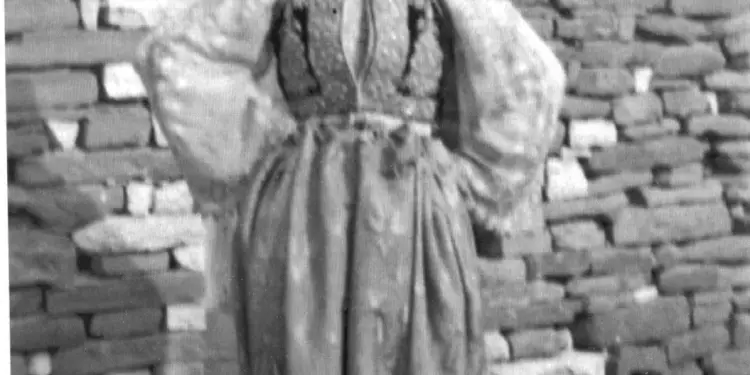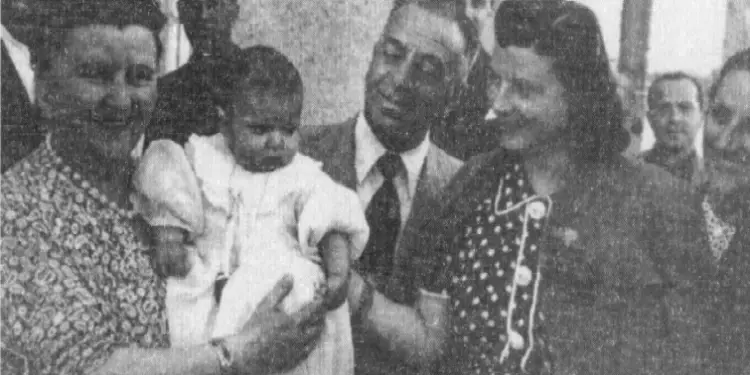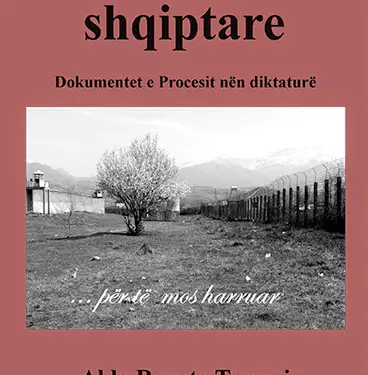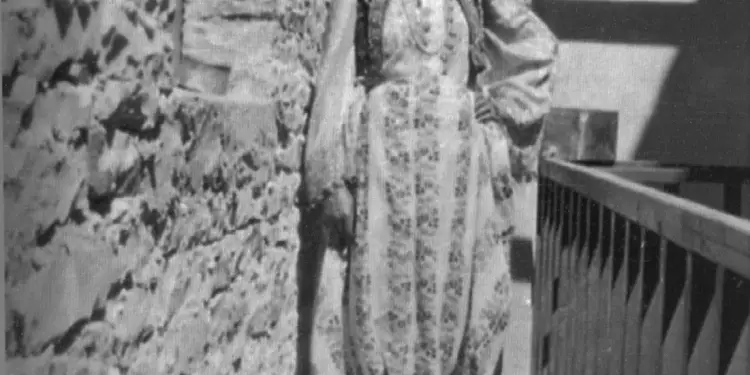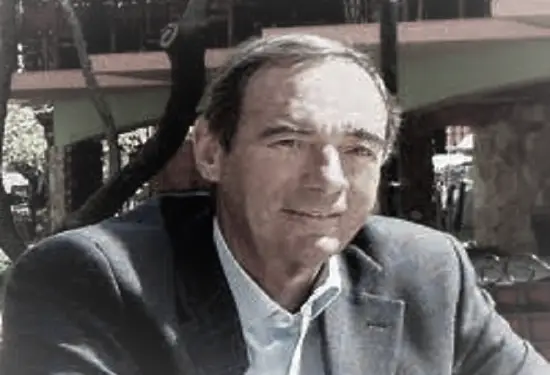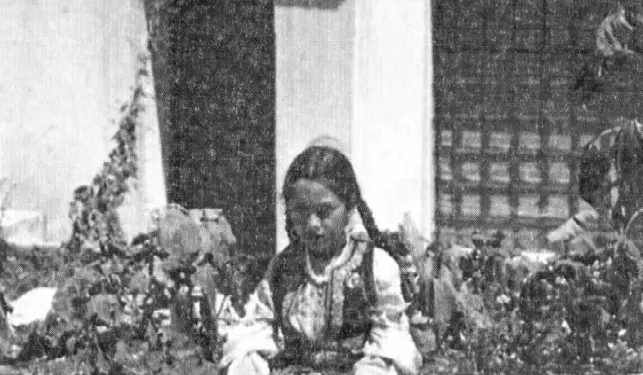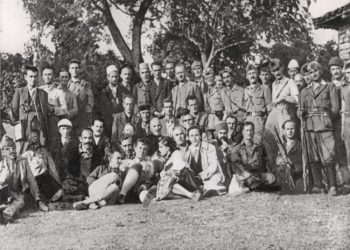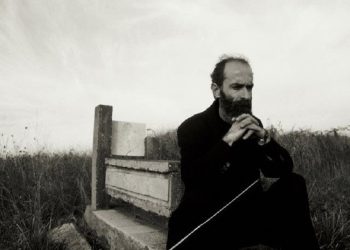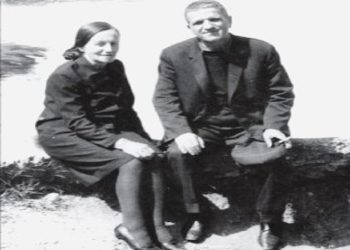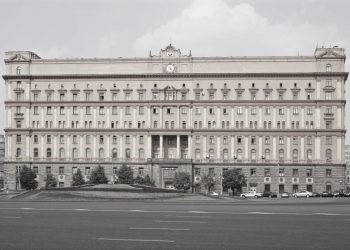By Aldo Renato Terrusi
Part fourteen
Accueil
Memorie.al / Fiumicino Airport. Alitalia’s ‘MD 80’ plane is ready for flight. It’s Saturday, November 6, 1993. 11.25am. The commander received approval. The flight attendants remind us once again to fasten the seat belt. The two engines are brought to maximum power, while the noise becomes muffled and deafening. Buttons and controls are tested one last time according to flight procedures, the brakes are released, the faster and faster movement begins, the acceleration slams the passengers into the back, the plane takes off. I feel an invisible force lift me up, leaving me suspended in the void. I look around to see if the other passengers have the same feeling as me. Some read, some look out the window, some are indifferent, some barely sit still and some, frozen in their seats, let their fears show. With a wide change of direction, the plane rises in altitude and heads towards the radio beacon of Bari, then straight to Tirana, our destination.
“You were in the cell with your father?”
When Mr. Terruzi died, I was in forced labor and returned to Burrel in 1953; at that time he was with Petrit Velaj, who now lives in Vlora with his family”.
“What do you remember from Burrell?”
I remember everything, because I came out in 1963, after 18 years in prison.”
“Tell me…”!
“The Burrell prisons were the most terrible in Albania. We ate once a day some soup with some beans or potatoes with a slice of black bread, and that for the whole day. Now from time to time I bleed because of the ulcer. We slept on small mattresses on the floor and had a blanket and a blanket.
Four times a day we had to collect everything for the guard check. The windows were without glass and during the winter it was terrible. When we had to go to the bathroom, during the day we were escorted and guarded by the guards, while at night they brought only one can to our cell that we all had to use. Every two or three weeks they took us to other cells, to avoid the creation of small groups that could prevent any escape”.
“How did you postpone the days?”
“Twice a day we went out into the inner courtyard for 40 minutes, under the watchful eye of armed guards. In the cell we could chat and sometimes even read the old newspapers that the guards brought us. Someone played cards, but most often we told the stories of our families. Stories that brought us endless happiness and sadness. All of us believed in a better future and the fall of the regime. Some even thought about the future amnesty. The hope of getting out of that hell was the only thing that kept us alive. Some of us worked to make the galoshes we used in prison”.
“What about my father?”
“He was a quiet man, a true gentleman. I remember him reading the hand and always closing it with kind words. This gave us some confidence for the future. I believe he was the only Italian in Burrel… everyone knew him… he suffered from heart disease, but there was no medicine”.
“Did they take you to torture”?
“Many of us were tortured and died. Your father was never tortured, because he was an excellent man and never complained.”
“What kind of torture was it about?”
“When they wanted, but especially at night, so that everyone else could hear the screams of the next danger and couldn’t sleep for the whole night, they took us to that cursed room. Look, it’s there.”
The room he shows us is located in the center of the two wings of the prison: small, four-cornered, without windows, it only adds to the horror when you see it.
“They often woke me up in the middle of the night and took me there, because I was very hot-tempered. With a stick, he broke two of my ribs and the shin of my left leg…touch here…do you feel it?”
“Yes”.
I see big lumps on his leg and feel, as I touch his chest, deep lumps. I hold myself back from pulling my hand away with a feeling of disgust.
Kokoshi continues:
“Look, they broke our bones from the beatings and then they didn’t treat us, so we suffered for a long time until the bones stuck together in a disorderly manner. As I told you before, the darkest period of my imprisonment lasted 76 days, two and a half months, during which I was tied hand and foot. As if this was not enough, to scare and destroy me psychologically, the killers used different methods. For three nights in a row they woke me up, untied me, gave me a shovel, forced me to dig a hole, put me in front of the platoon lined up ready to fire, but they turned back the firing and put me back in the cell. It wasn’t my turn yet.”
Toli intervenes, who until that moment had not opened his mouth and was shocked by the confession.
“Do you remember anything else?”
“Of course. The most common torture, when they decided to get rid of someone, was to beat them in that infamous room and then dunk them many times in that barrel outside and finally leave them tied up inside. During the winter, at night, the temperature went many degrees below zero, and by morning the unfortunate deserter had died of the cold. All the prisoners, in addition to hearing the screams of the previous night, could see the corpse in the barrel in front of their cell windows all day long.
Four eyes, chosen among the most rebellious, had to dig the hole in the common cemetery in front of the cells. The corpse was wrapped in a blanket and subjected to an offensive ritual, a kind of monstrous funeral, during which the guards recited offensive content against the dead and the future victims, which in short would be us. Another terrible torture was to tie hands and feet with chains and put them in a kind of tube where there was only room for the feet, so that you could not lean on the walls in any way. So really, you were hanging in the void. If you let go, you fell into the sewage below, drowning in shit.
You see that room over there at the end… it was the room of the old men who had to die… they were left there until they gave up. In other words, what were they working to take away our souls?”
“And when you got sick, what happened to you”?
“There was a room adapted for nursing, but without medicine. And yet it served only for the guards. Oh, we would heal ourselves, oh, we would die. Our life was worth less than a piece of bread”.
“How many of you died in those years?”
“Between the years 1949 and 1952, some 60 people may have died. Some disappeared without anyone knowing what happened to them. There were about 120 prisoners in the prison and a dozen guards who changed shifts.”
“Where were all those corpses buried?”
“Always in the same place. There, right in front of the windows of the cells between the two enclosures, so that everyone could see what end they would meet. There used to be a cherry tree that in the spring seemed to bloom for those who digested under it.
The corpses, cradles – clothes and other things were divided among the executioners – wrapped in blankets, they were buried in a row, one apart from the other, without a name and without any mole”.
Blushing, with terror, pity and anger engraved on our faces and in our hearts full of longing, we approach the exit of the prison. We salute and take the way back; few words, many thoughts and a fruitless sadness. We arrive in Tirana around 15.00.
We accompany Kokoshi home. I take his address, give him mine and thank him profusely. We promise each other two-way help: he will find my bones and I will send him medicines that are not found in Albania. However, we will meet once again at the Consulate in a little while, there from 17.00, for a joint statement about our objectives. They bring us to “Dajti”. Say hello to the driver and Toli, whom we will meet again later.
We have neither eaten nor has drunk, our appetite been completely cut off. We take a short walk to get out the evil we saw and to seek comfort among people, among men and women who walk around unaware of the bitterness and suffering we carry inside. We return to the hotel to relax and rest for a few moments in the salon before going to the Consulate.
We exchange a few words with Spartacus, who, always very politely, asks us about our impressions of the Burrell prison. I note that even today, Burreli is considered by Albanians a place of terror and death.
A short walk is enough to reach our embassy. We face Toli and Angel. Before the Chancellor, we submit our deposition, dated November 12, 1993. After a while, we part and say a warm greeting to the Angel. I think that, most likely, I will never meet him again and this makes me very sad, because in him I see my father, if nothing else for the baggage of memories he carries with him. We will write to each other.
I see him leave in the dark of the evening with his blue coat and that wobbly walk of his. We also say hello to Toli, who reminds us that we are invited to Pierxorxho’s for dinner.
“I will pass by “Dajti” there from 20:00 and then we will walk to Pierxorxho’s house, which is on the opposite side of Skënderbej Square”.
On the way back to the hotel, we also get some Italian sweets and champagne. The apartment that Pierxhorxho rented is located in one of the two tower-shaped buildings in front of “Skënderbej” square. The view from there is wonderful: the fine and beautiful mosque, the hero’s monument and the magnificent government buildings of the Fascist era.
In addition to the owner of the house, we also meet two other Italian friends.
I volunteer as a cook for spaghetti with fresh tomato sauce and parmesan cheese. Second course steaks on skewers. All quenched with Chianti wine from the owner’s private winery.
Between one conversation and another, Pierxorxho explains to his new friends the rare adventure of our family, sometimes supported by my intervention, tek-tuk.
This is the last night in Albania, tomorrow right after lunch our plane will take us to Rome. A congratulatory toast to past events and to what we hope will happen in the future conclude our last night in Tirana. We are very grateful to Pierxorxho and Toli, whom we greet with kindness and sympathy.
In bed, before I fall asleep, I try to organize the ideas, thoughts and memories that have accumulated during the past few days in a fast and overwhelming way.
START
To avoid possible delays due to sleep, I asked them at the reception to wake me up at 08.00 but, to be on the safe side, I also set my alarm clock. Neither one nor the other was needed.
I’m already awake and still in my pajamas, I’m preparing my suitcase, not washed and dressed yet, when my uncle knocks on the door: “I came to wake you up.”
It’s not yet 07:00. After a while our suitcases are ready and we took them out of the rooms. With relative calm, we go down to have breakfast. In the living room we find Spartacus.
“Can I buy you a coffee before breakfast?”
“Thank you, with pleasure.”
“I hope you have had a pleasant week and that you, Aldo, realize your idea of taking your father’s remains to Italy.”
“Actually, I would like to do something more. I still don’t know how, but I would like to erect a small tombstone or put a commemorative plaque in memory of the common dead, Italians and Albanians, in the Burrel prison”, I answer.
“Of course, it’s a noble idea; I hope you can make it happen. If I can, I will help you.”
“I would be very happy. Thank you”.
We have breakfast and ask the reception to call us a taxi.
In the salon appears the small form of Xhavit, who has come to greet us, but to our surprise, all the “Sports Masters” are slowly coming after him.
Someone has also brought the sons and grandsons, so that, in no time, the hall fills up and around us there is a crowd of people celebrating. Excitement and sadness are the mixed feelings among the former players. Out of pockets and wallets comes out an old photo on this occasion.
“Do you see how beautiful we were and what a beautiful team we had!”
How could the proof of those creamed boys be denied? The time has come. The taxi is waiting for us. Embarrassed by the warmth of that group of people, we say hello until they are out of sight. We do not speak; each of us is wrapped in our own thoughts. It’s Saturday, November 13, Alitalia’s ‘md 80’ plane flies to Rome in an immaculate blue sky.” Memorie.al




